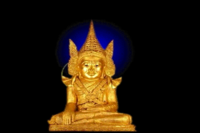Microsoft Word shortcut keys
| Ctrl + 0 | Adds or removes 6pts of spacing before a paragraph. |
| Ctrl + A | Select all contents of the page. |
| Ctrl + B | Bold highlighted selection. |
| Ctrl + C | Copy selected text. |
| Ctrl + E | Aligns the line or selected text to the center of the screen. |
| Ctrl + F | Open find box. |
| Ctrl + I | Italic highlighted selection. |
| Ctrl + J | Aligns the selected text or line to justify the screen. |
| Ctrl + K | Insert link. |
| Ctrl + L | Aligns the line or selected text to the left of the screen. |
| Ctrl + M | Indent the paragraph. |
| Ctrl + P | Open the print window. |
| Ctrl + R | Aligns the line or selected text to the right of the screen. |
| Ctrl + T | Create a hanging indent. |
| Ctrl + U | Underline highlighted selection. |
| Ctrl + V | |
| Ctrl + X | Cut selected text. |
| Ctrl + Y | Redo the last action performed. |
| Ctrl + Z | Undo last action. |
| Ctrl + Shift + L | |
| Ctrl + Shift + F | Change the font. |
| Ctrl + Shift + > | Increase selected font +1pts up to 12pt and then increases font +2pts. |
| Ctrl + ] | Increase selected font +1pts. |
| Ctrl + Shift + < | Decrease selected font -1pts if 12pt or lower, if above 12 decreases font by +2pt. |
| Ctrl + [ | Decrease selected font -1pts. |
| Ctrl + / + c | Insert a cent sign (¢). |
| Ctrl + ' + <char> | Insert a character with an accent (grave) mark, where <char> is the character you want. For example, if you wanted an accented è you would use Ctrl + ' + e as your shortcut key. To reverse the accent mark use the opposite accent mark, often on the tilde key. |
| Ctrl + Shift + * | View or hide non printing characters. |
| Ctrl + <left arrow> | Moves one word to the left. |
| Ctrl + <right arrow> | Moves one word to the right. |
| Ctrl + <up arrow> | Moves to the beginning of the line or paragraph. |
| Ctrl + <down arrow> | Moves to the end of the paragraph. |
| Ctrl + Del | Deletes word to right of cursor. |
| Ctrl + Backspace | Deletes word to left of cursor. |
| Ctrl + End | Moves the cursor to the end of the document. |
| Ctrl + Home | Moves the cursor to the beginning of the document. |
| Ctrl + Spacebar | Reset highlighted text to the default font. |
| Ctrl + 1 | Single-space lines. |
| Ctrl + 2 | Double-space lines. |
| Ctrl + 5 | 1.5-line spacing. |
| Ctrl + Alt + 1 | Changes text to heading 1. |
| Ctrl + Alt + 2 | Changes text to heading 2. |
| Ctrl + Alt + 3 | Changes text to heading 3. |
| Alt + Ctrl + F2 | Open new document. |
| Ctrl + F1 | |
| Ctrl + F2 | |
| Ctrl + Shift + > | Increases the highlighted text size by one. |
| Ctrl + Shift + < | Decreases the highlighted text size by one. |
| Ctrl + Shift + F6 | Opens to another open Microsoft Word document. |
| Ctrl + Shift + F12 | Prints the document. |
| F1 | Open Help. |
| F4 | Repeat the last action performed (Word 2000+) |
| F5 | Open the find, replace, and go to window in Microsoft Word. |
| F7 | Spellcheck and grammar check selected text or document. |
| F12 | Save as. |
| Shift + F3 | |
| Shift + F7 | Runs a Thesaurus check on the word highlighted. |
| Shift + F12 | Save. |
| Shift + Enter | |
| Shift + Insert | Paste. |
| Shift + Alt + D | Insert the current date. |
| Shift + Alt + T | Insert the current time. |
In addition to the above shortcut keys users can also use their mouse as a method of quickly do something commonly performed. Below some are examples of mouse shortcuts.
Click, hold, and dragSelects text from where you click and hold to the point you drag and let go. Double-clickIf double-click a word, selects the complete word. Double-clickDouble-clicking on the left, center, or right of a blank line will make the alignment of the text left, center, or right aligned. Double-clickDouble-clicking anywhere after text on a line will set a tab stop. Triple-clickSelects the line or paragraph of the text the mouse triple-clicked. Ctrl + Mouse wheelZooms in and out of document.

